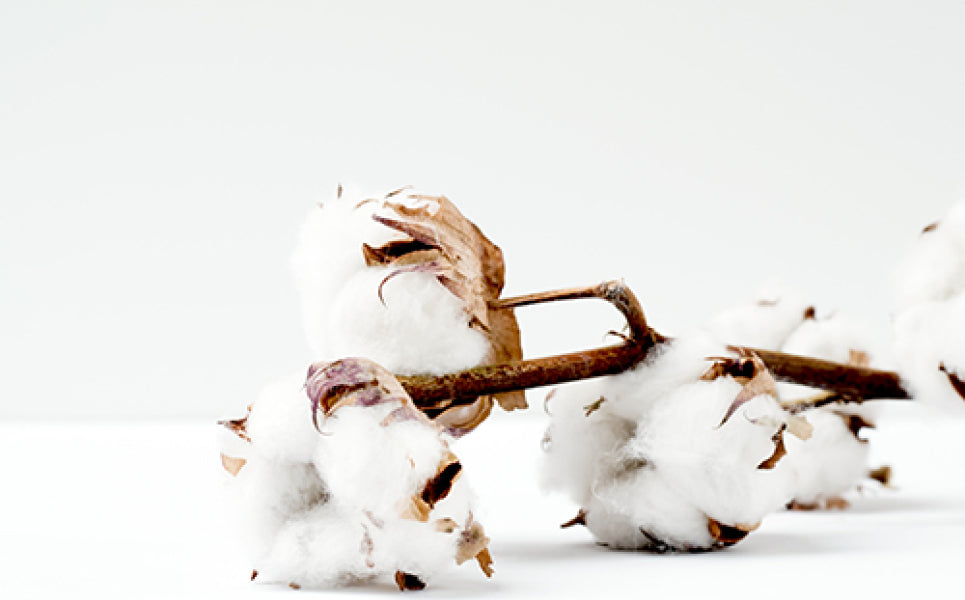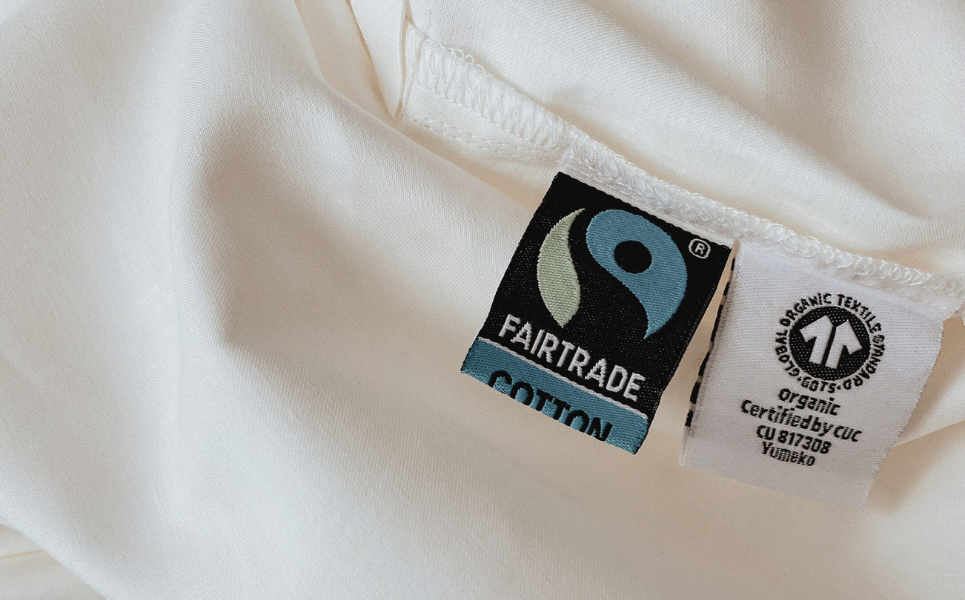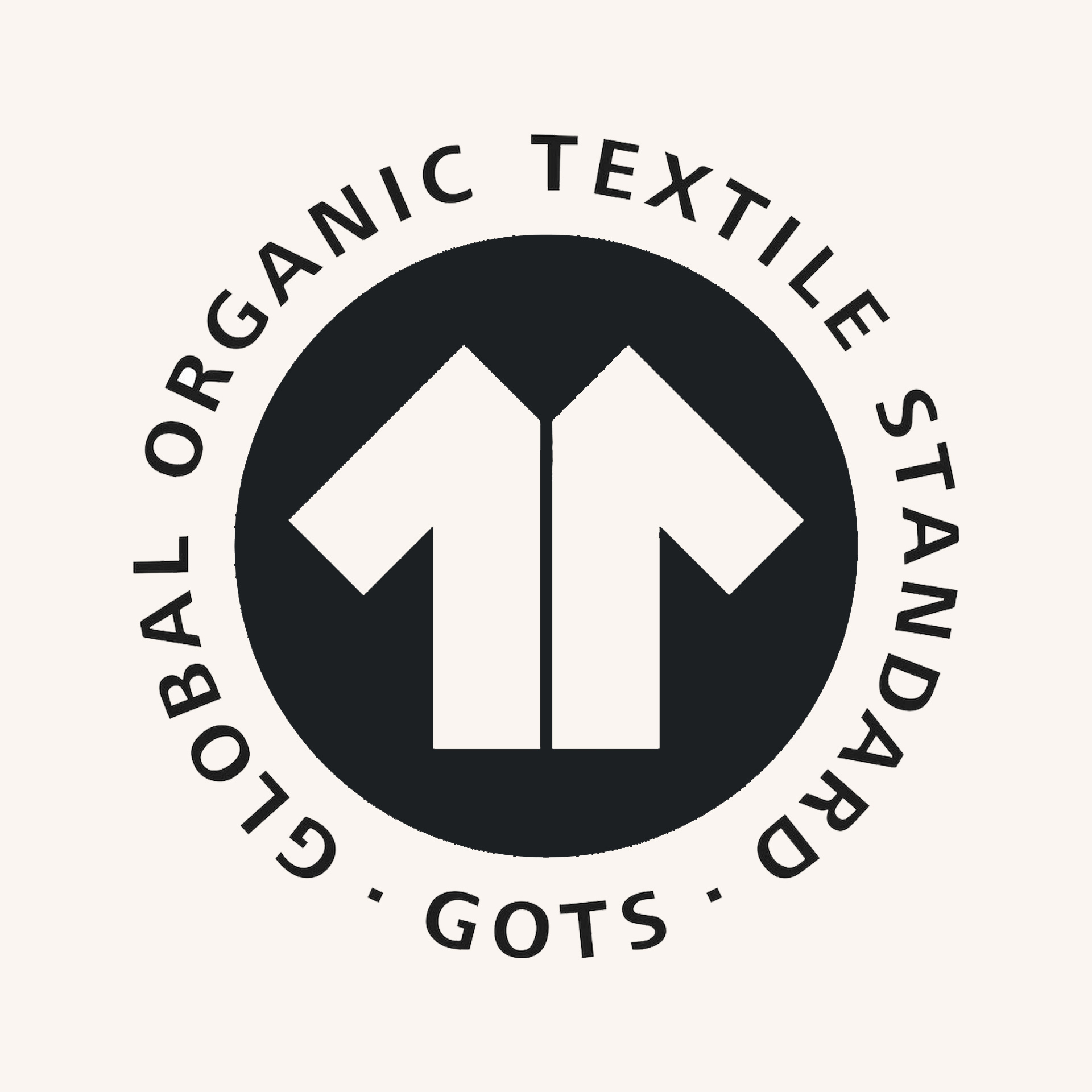Hallmark: Global Organic Textile Standard (GOTS)
What is the Global Organic Textile Standard? The GOTS, is a label developed to create a globally recognized standard for organic textiles. The focus is on organic farming and socially responsible textile processing. So it is possible for a farmer to be GOTS certified, but also for a garment factory. Because of this, GOTS is active in every part of the production chain, from harvesting of materials, fair and sustainable production of clothing to labeling and packaging of clothing. For a garment to carry a GOTS label, all parts of the production chain must be GOTS certified.
GOTS uses two standards:
- GOTS Organic: a product consists of more than 95% organically certified materials
- GOTS Made with organic: a product consists of more than 70% organically certified materials
GOTS uses a maximum percentage of 95% since a garment can almost never be made from 100% organic materials. For example, consider a zipper or synthetic material for stretch, both of these can in no way be produced 100% organically.
Organic textiles
GOTS has a number of strict environmental requirements for growing and processing organic fibers. These are also laid down in EU legislation. Some of the most important requirements are:
- No synthetic plant protection products should be used in agriculture. Consider harmful substances such as GMO (genetically modified organisms), fertilizers, pesticides, heavy metals, microplastics, etc.
- Animal materials must comply with the animal welfare principles, which means good conditions for animals. Wool must always be mulesing-free and no chlorine may be used in treating wool, for example.
- There are strict requirements for the paint that can be used, and machines are not allowed to use oil that contains heavy metals.
- Wastewater must be handled properly. Wastewater must be sent to a wastewater treatment plant.
- Sustainable packaging materials must be used. This means not using plastic, for example, but using recycled plastic.
Fair production
GOTS also has a number of socially responsible requirements when it comes to fair production and working conditions. This applies to both the factories where the clothing is produced and the farmers. However, the requirements for the farmers are more difficult to monitor and, unfortunately, are not always well enforced. Some of the most important requirements are:
- There is no question of forced labor.
- All workers have the right to form unions and bargain collectively.
- There is no child labor under local law and people under 18 are not allowed to do dangerous work.
- There are safe working conditions
- There is no discrimination, harassment or violence toward employees
- There are "normal" working hours, meaning no more than 48 hours per week, one day off every seven days, and no more than 12 hours (voluntary) of overtime.
- Immigrant workers are handled well.
- At least the legal minimum wage must be paid. A living wage must also be established and from it the wage gap (difference between the wage paid and the living wage) must also be calculated. GOTS encourages suppliers to close this gap.
Check
To become GOTS certified, a company must meet all the requirements of the GOTS standard that apply to that company. The audit is done by an independent accredited party. To maintain GOTS certification, a company is re-audited every year, sometimes these are also unannounced audits.
Unfortunately, these reports are not made public. Still, you can rest assured that when a garment or factory is GOTS certified, you can be sure that the material is made organically and socially responsible. Brands such as Armedangels, Dedicated, Jan 'n JuneLanius and Thinking Mu have GOTS certified items.













